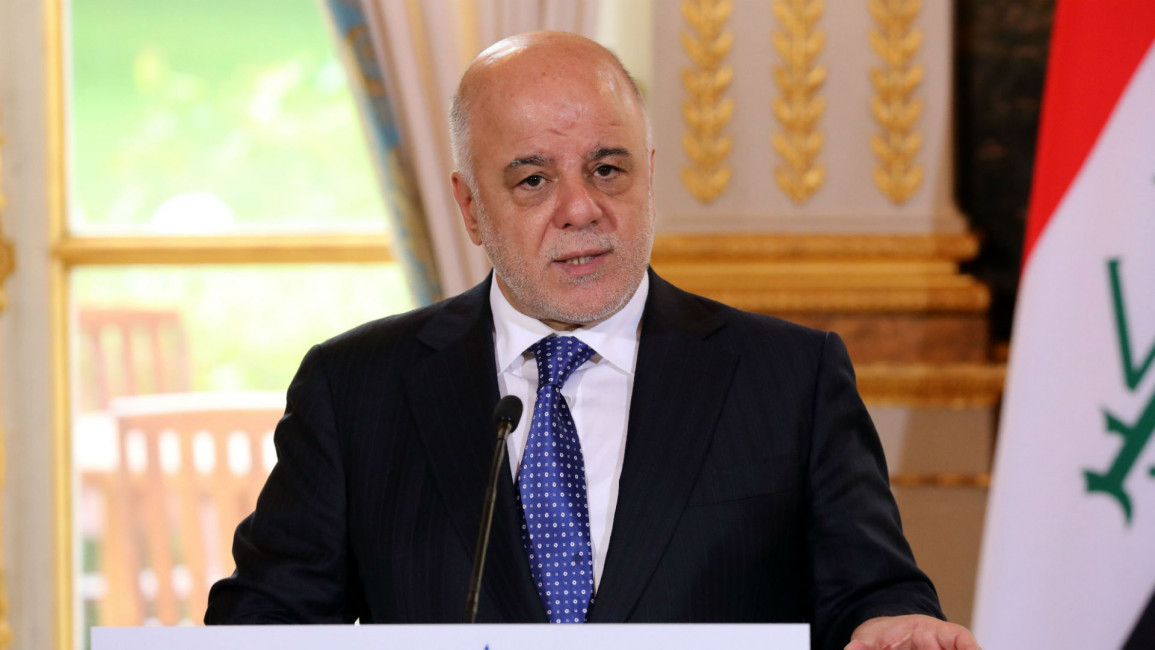Abadi vows to work with Iraq election winners
Iraqi Prime Minister Haider al-Abadi on Monday called for all political parties to respect the results of his nation's parliamentary election.
"We are ready to work and cooperate in forming the strongest government for Iraq, free of corruption," Abadi said in a live televised address.
Partial returns from Saturday's balloting - the first since Iraq declared victory over the Islamic State militant group — were announced by the country's electoral commission and put a populist coalition organized by influential Shia cleric Muqtada al-Sadr as the early front-runner.
Remembered for leading an insurgency against US forces and inciting sectarian bloodshed against the Sunni population, al-Sadr has in recent years sought to recast himself as a populist, railing against corruption and failing services and striking a political alliance with Iraq's secularists and Communist Party.
So far, Prime Minister Haider al-Abadi is performing poorly in early returns, coming in third and fourth places in most provinces, and fifth in Baghdad.
An electoral alliance of Hashd al-Shaabi-linked candidates, headed by militia commander Hadi al-Amiri, is currently in second place in the election returns.
Al-Amiri maintains close ties to Iran. He also has said he is open to US training of Iraq’s military and regularly meets with US diplomats in Baghdad.
Al-Sadr commands his own militia that fought against IS militants, but he has disavowed any Iranian and US influence in Iraq, and he has called for the full withdrawal of US troops.
His former Mahdi Army fought American forces for years. In 2014, he reorganized his fighters under the name the Peace Brigades - Saraya Salam.
The electoral commission released results from 10 of 19 provinces Sunday night, including tallies from Baghdad and Basra provinces. The commission gave no indication on when more returns would be announced.
Members of the election commission read out vote tallies for each candidate list in 10 provinces on national TV. By the end of the announcement, al-Sadr's list had the highest popular vote, followed by al-Amiri's.
Seats in parliament will be allocated proportionally to coalitions once all votes are counted.
Only 44 percent of voters turned out - the lowest in the four elections held since Saddam's ouster in 2003. Despite that, al-Sadr's sophisticated political machine mobilised his loyal base of followers to go to the polls.
Any political party or alliance must gain a majority of the 329 seats in parliament to be able to choose a prime minister and form a government. Dozens of alliances ran for office, and months of negotiations are expected before any one alliance can pull together the 165 required seats.



